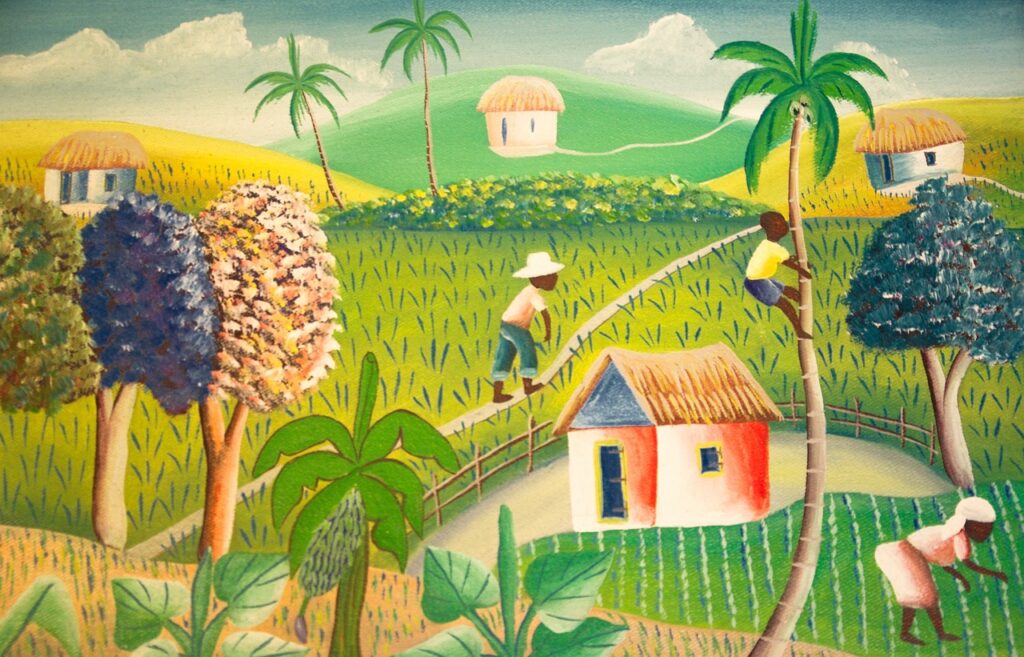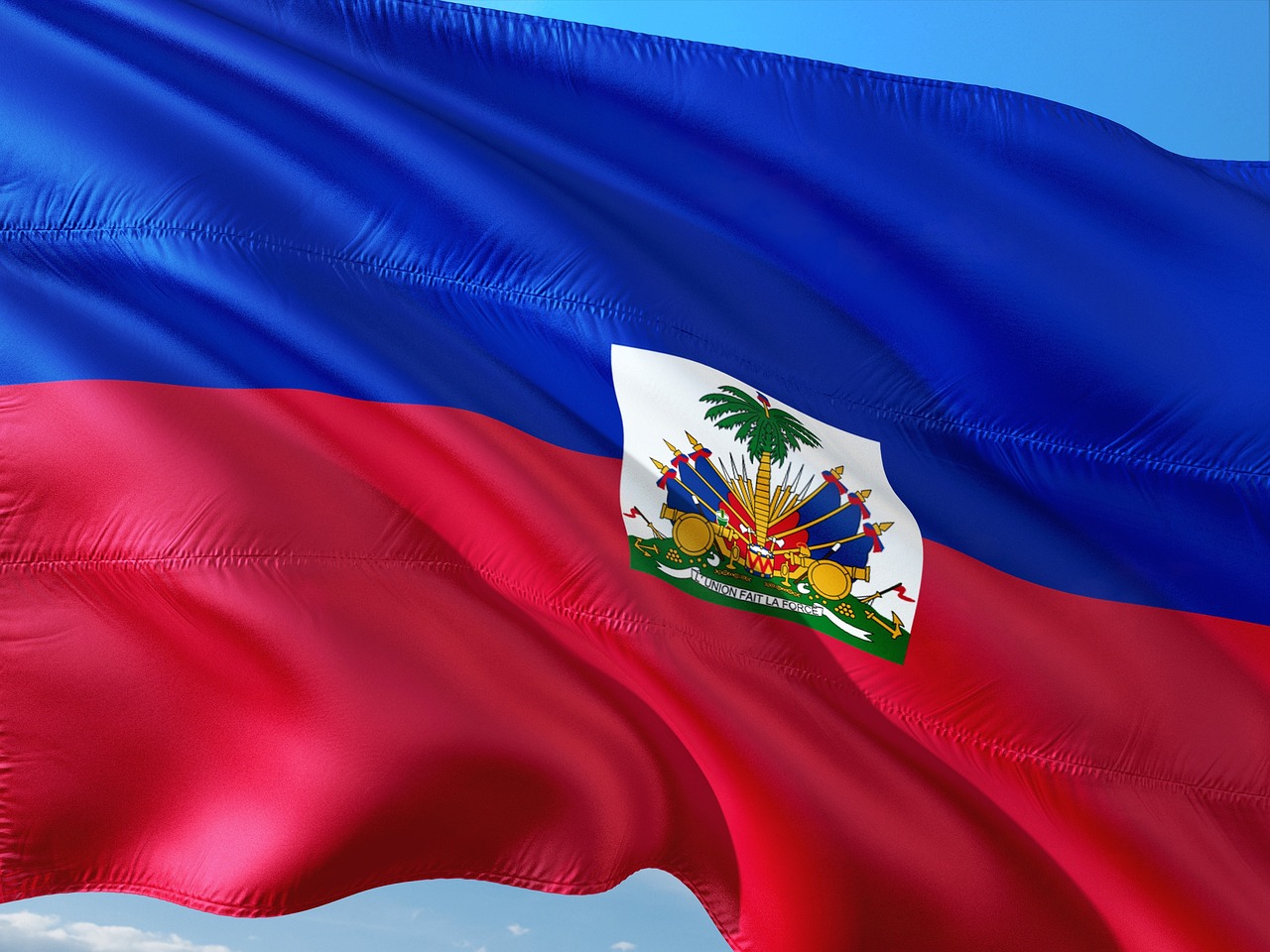When Jean Roma Bathelemy and Roudachel Charpentier learned that Haitian migrants were a hot topic in the US Presidential Election, neither was surprised. It would not be the first time stereotypes and prejudicial statements had been used against their community had been used to stir up votes. The Sinclair students hail from the Haitian city of Thiotte and understand the sad reality their people have faced in many countries in recent years.
“Living in the states, the prejudice is less pronounced but it’s still there. When Donald Trump said that Haitians were eating cats and dogs, at first, I didn’t take it personally. But over time, I realized people were thinking it was true, that Haitians were breaking into homes to steal and eat their pets,” Charpentier told The Clarion.
For a nation that has endured prejudice since independence it’s nothing new. In Brazil, the Dominican Republic, and many other places anti-Haitian sentiments are common once an election cycle rolls around. They are tired and yearn for a chance to speak their truth.
“My message is one of encouragement to all Haitians back home and abroad. The situation is catastrophic. We would love to return, to live back home. I hope other countries can help Haiti overcome these challenges.”
Barthlemey and Charpentier defy the stereotypical image many imagine the Haitian migrant to be. Both are educated, graduates of the Centre d’Etudes Diplomatiques et Internationales
and Université Episcopale d’Haiti respectively. Like many international students, they are here to study and have plans to return to build a better Haiti. But that’s easier said than done.
“The biggest problem is security. Haiti isn’t a producer of weapons, but there are guns everywhere. It wasn’t always like that,”
As they explained, the roots of this prejudice are deep, goes back many years, and has the real potential to ruin lives. A look at Haiti’s past shows that.

“It dates back to before 1804, when we were fighting for our freedom. Haiti at the time was colonized by the French, who stratified society into multiple racial classes. In the minds of the colonials, the idea that blacks could fight for their freedom and win was unacceptable. They did not want to accept us as equals,” Barthelemy stated.
Haiti’s revolutionary war would last from 1791-1804 and include brutal fighting across what was referred to as the colony of Saint-Domingue. France would leave but would return 21 years later with an armada, demanding payment for the lost profits in slaves when Haiti gained independence. According to the New York Times, it would not be completely paid off until 1947.
In Charpentier’s eyes, the debt is proof that the roots of Haiti’s modern woes began in the 19th century. Like an avalanche, it built up over time.
“The destruction of Haiti was planned a long time ago. It is by design,” Charpentier stated.
In 1937, anti-Haitian sentiment would a historically ugly turn when an orchestrated massacre in the Dominican Republic would leave an estimated 20,000 Haitians dead. On the orders of Rafael Trujillo, the fascist leader of Haiti’s Spanish-speaking neighbor at the time, neither men, women, or children were spared. The Parsley Massacre remains a bleak chapter in the island of Hispaniola’s history.
“When I read about such incidents, I feel shocked. I feel hate inside me when I hear these stories,” Barthelemy explained.
Like many of its neighbors, Haiti would endure a savage and oppressive dictatorial regime during the Cold War. Francois ‘Papa Doc’ Duvalier and his son Jean-Claude ‘Baby Doc’ Duvalier would become bywords for brutality. But even by the extreme example they set, the situation in Haiti now is worse according to the pair.
“It’s worse now than when the Duvaliers were in power. It’s getting worse and worse. Papa Doc was incredibly oppressive. But security and the ability to eat in peace was guaranteed. Now we don’t even have that. Now there is no guarantee of anything.,” Charpentier said.
“We were also respected back then. Not any group of people could beat the French and win their liberty. Not many black people beat Napoleon for their freedom. We had respect for that. But now we are just discriminated against and the victims of great racism,” Barthelemy added.
Despite their nation’s many woes, they are eager to emphasize that Haiti is more than the sum of its catastrophes. It’s a place full of history, culture, and the arts. Jubilantly, the pair play the country’s most famous cultural export, Compa music, while speaking glowingly of their compatriots that have won fame around the world: Georges Sylvain, Dany Laferrière, and Kreyol La among others.
A land full of potential
Charpentier is passionate about his country’s agriculture, frequently citing its vast potential for an organic and sustainable future. He gushes when talking about the fruits and crops that grow there.
“Agriculture in Haiti has great production capacity. We can grow coffee, mangoes, watermelon, bananas, cherries, papaya-practically everything except wheat,” Charpentier stated.
The only thing Haiti lacks, he stated, is political will and the rule of law. Despite that, he still has dreams of revolutionizing agriculture in his country. He’s already started a number of projects to push that vision closer to reality.
“Students graduate from universities with great ideas but don’t have an opportunity. I am an example of that. I’m a graduate, I already know what I want to work on back home, but the only thing I lack is the money.”
While both are eager to study and better themselves, neither has abandoned their country. On the contrary, they are determined to help Haiti get through this tough period.

More than a stereotype
We’ve seen the memes, heard the popular depiction of the voodoo-obsessed Haitian migrant. In newspapers, movies, books its what has captured the audiences. And, unwittingly, tarnished the image of an entire people.
“Voodoo is part of Afro-Latin heritage. It played a part in the revolution. Before major battles voodoo ceremonies were used as psychological warfare. But also to give heart to the troops. If voodoo was part of that we can’t neglect it. We care about it because it is part of our history and liberty,” said Barthelemy.
While like in every community, Haiti has its bad apples, they by no means represent the majority. The truth is they are an island full of good people yearning to live in peace and security.
“As a Haitian, I see each of us individually as a symbol of freedom. Not just anyone could beat Napoleon to win their freedom. We fought with blood and fire to earn our liberty and till today we represent that,” Charpentier said.
They remain proud of their heroes and their contributions to the world. That pride is only fueled each time they are asked if they eat cats and dogs. Still, the comments hurt just as any insult to their nation does. In their eyes, the new, biased discourse on Haiti is a reminder of the need for peace back home.
“It shows no respect for the years we fought, the lives and blood we gave to America, or the people back home that are suffering. When Haitians are insulted by Trump like that, it’s a reminder that we need to build up are country and go back. We can’t be insulted like that,” said Charpentier.
Both understand and respect the reality of immigration, that if the laws get tougher they may have to leave. Neither fears that prospect, saying they would obey the law in the US no matter what.
“The law needs to be respected. I only ask is for one week to prepare and then I’ll go home. I’m a professional and have no problem returning. I came here to better myself but if the president says to leave then I have to respect that.
But the current climate of anxiety hanging over their community has brought back fears of anti-Haitian incidents like the Parsley Massacre. After all, few communities in the Western Hemisphere understand just how quickly rhetoric can lead to violence like they do.
“It could happen here. During election times anything is possible. If people want me to leave that’s no problem. But don’t kill me, don’t fight me. Just tell me and I will go. I don’t want to fight anyone. I respect the law. Just don’t harm me,” Charpentier stated.
Ismael David Mujahid, Executive Editor

